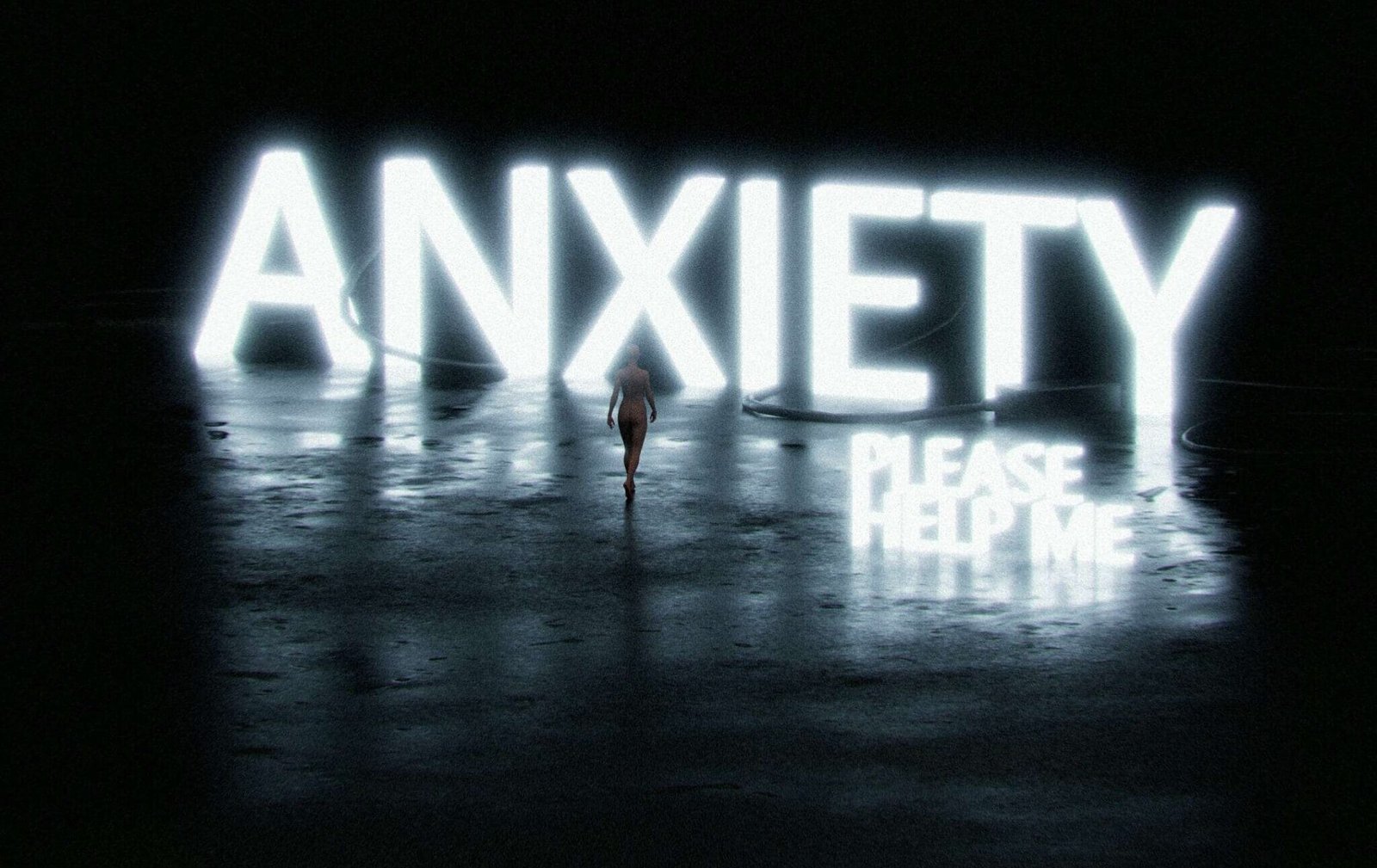Introduction
Anxiety and depression are prevalent mental health conditions that significantly impact millions of people worldwide. While these conditions are often considered distinct, they frequently occur together and share many overlapping symptoms. Understanding the connection between anxiety and depression is crucial for effective treatment and management. This comprehensive guide will explore the intricate relationship between these conditions and provide practical strategies for managing both, helping you achieve better mental health and a higher quality of life.
Table of Contents
1. Understanding the Link Between Anxiety and Depression
Anxiety and depression frequently coexist, with each condition potentially exacerbating the other. This comorbidity can complicate diagnosis and treatment, making it essential to understand how these conditions interact. Anxiety is characterized by persistent worry, fear, and apprehension, often leading to physical symptoms such as increased heart rate and sweating. Depression, on the other hand, is marked by persistent sadness, loss of interest in activities, and a lack of motivation. When both conditions are present, they can create a feedback loop where anxiety amplifies the feelings of hopelessness associated with depression, and depression heightens feelings of unease and worry.
How It Helps
Understanding the connection between anxiety and depression provides a comprehensive view of how these conditions affect each other. This awareness allows for a more nuanced approach to treatment, as addressing one condition can often alleviate symptoms of the other. By recognizing the interplay between anxiety and depression, you can work with healthcare providers to develop a treatment plan that addresses the full spectrum of your mental health needs.
Why It Works
The interplay between anxiety and depression is rooted in common underlying factors, such as neurotransmitter imbalances, genetic predispositions, and environmental stressors. Both conditions can exacerbate each other’s symptoms, making it crucial to address them simultaneously for effective management. By understanding this relationship, healthcare professionals can tailor treatment approaches to address both conditions, improving overall outcomes.
Tip
Consult a mental health professional to discuss your symptoms and obtain a comprehensive evaluation. This will help you and your provider understand how anxiety and depression are interacting and develop a treatment plan that addresses both conditions effectively.
2. Recognizing Common Symptoms

Anxiety and depression share several symptoms, including persistent feelings of sadness, fatigue, irritability, and difficulties with concentration. Both conditions can lead to a diminished quality of life and affect daily functioning. For instance, individuals with anxiety may experience excessive worry and restlessness, while those with depression may struggle with persistent low mood and lack of interest in previously enjoyable activities. The overlap in symptoms can make it challenging to distinguish between the two conditions, but recognizing these common symptoms is crucial for seeking appropriate treatment.
How It Helps
Identifying shared symptoms allows for early detection and intervention, which can prevent the conditions from worsening. Understanding which symptoms overlap helps in creating a targeted approach to treatment, addressing both anxiety and depression simultaneously. By recognizing these symptoms, you can better communicate your experiences to healthcare providers and receive a more accurate diagnosis.
Why It Works
The overlap in symptoms between anxiety and depression often leads to a complex clinical picture, where one condition may mask or mimic the other. A comprehensive understanding of these shared symptoms ensures that treatment plans can address the full spectrum of mental health challenges, improving the likelihood of successful management.
Tip
Keep a detailed symptom diary to track your emotional and physical experiences. Documenting patterns in your symptoms can provide valuable insights into how anxiety and depression affect you and assist your healthcare provider in developing a personalized treatment plan.
3. Exploring Common Risk Factors
Several risk factors contribute to the development of both anxiety and depression, including genetic predispositions, neurobiological factors, and life experiences. Genetics play a significant role, as individuals with a family history of these conditions are at higher risk. Neurobiological factors, such as imbalances in neurotransmitters like serotonin and dopamine, also contribute to the onset of these disorders. Additionally, life experiences such as trauma, chronic stress, and significant life changes can trigger or exacerbate both anxiety and depression.
How It Helps
Understanding common risk factors provides insights into why anxiety and depression may occur together and helps identify preventive measures. By recognizing these risk factors, you can take proactive steps to manage and mitigate their impact, potentially reducing the severity or likelihood of developing these conditions.
Why It Works
Risk factors often interact in complex ways to contribute to the onset of anxiety and depression. Addressing these factors through preventive measures or early intervention can help reduce the overall risk and support better mental health outcomes. Identifying these factors allows for a more tailored approach to prevention and treatment.
Tip
Discuss your family history and personal experiences with a mental health professional. This information can help in identifying risk factors and developing a personalized approach to managing anxiety and depression.
4. Implementing Effective Coping Strategies
Effective coping strategies are essential for managing anxiety and depression. Techniques such as mindfulness, cognitive-behavioral therapy (CBT), and relaxation exercises can provide significant relief. Mindfulness involves paying attention to the present moment without judgment, which can help reduce rumination and stress. CBT focuses on identifying and changing negative thought patterns that contribute to anxiety and depression. Relaxation exercises, such as deep breathing and progressive muscle relaxation, help calm the body and mind, reducing the physical symptoms of these conditions.
How It Helps
Coping strategies provide tools to manage symptoms and improve overall well-being. These techniques help address the cognitive, emotional, and physiological aspects of anxiety and depression, promoting better mental health. By incorporating these strategies into your daily routine, you can enhance your ability to cope with stress and reduce the impact of anxiety and depression on your life.
Why It Works
Coping strategies target various aspects of anxiety and depression, from changing negative thought patterns to promoting relaxation. By addressing these factors, you can improve your ability to manage symptoms and enhance your overall quality of life. These strategies provide practical tools for managing daily stressors and reducing the severity of mental health symptoms.
Tip
Incorporate mindfulness practices, CBT techniques, or relaxation exercises into your daily routine. Experiment with different strategies to find what works best for you and seek guidance from a mental health professional if needed.
5. Seeking Professional Help

Professional help is crucial for managing anxiety and depression effectively. Mental health professionals, such as psychologists, psychiatrists, and therapists, can provide accurate diagnoses, therapy, and medication as needed. Psychotherapy, such as CBT, helps address the cognitive and emotional aspects of anxiety and depression. Medication, such as antidepressants and anti-anxiety drugs, can help manage symptoms and improve overall functioning. Professional guidance ensures that you receive a comprehensive evaluation and personalized treatment plan tailored to your needs.
How It Helps
Seeking professional help provides access to specialized treatment options and support. Mental health professionals can diagnose complex cases, offer evidence-based therapies, and monitor your progress. This comprehensive approach ensures that you receive the most effective treatment for managing anxiety and depression.
Why It Works
Mental health professionals have the expertise to diagnose and treat anxiety and depression. They use a variety of therapeutic techniques and medications that target specific symptoms and underlying causes. Professional guidance is essential for addressing complex cases and ensuring that you receive appropriate and effective treatment.
Tip
Schedule regular appointments with a mental health professional to discuss your symptoms and treatment options. Follow their recommendations and communicate openly about your experiences and progress to ensure the best possible outcomes.
6. Building a Support System
A strong support system is vital for managing anxiety and depression. Friends, family, and support groups can provide emotional support, practical assistance, and a sense of connection. Having people to talk to and share your experiences with can reduce feelings of isolation and provide encouragement during difficult times. Support groups, whether in-person or online, offer a platform to connect with others who understand your challenges and provide valuable insights and support.
How It Helps
A supportive network offers emotional reassurance and practical assistance, helping to alleviate the burden of anxiety and depression. It provides a sense of belonging and understanding, which can enhance your overall well-being and resilience. A strong support system can help you navigate challenges and stay motivated in your journey towards recovery.
Why It Works
Support from others helps reduce feelings of isolation and provides a valuable source of encouragement and advice. Connecting with people who understand your experiences can improve your emotional resilience and provide practical strategies for managing anxiety and depression.
Tip
Reach out to trusted friends, family members, or support groups. Share your experiences and seek their support as needed. Building and maintaining a strong support network can improve your ability to manage anxiety and depression and provide valuable emotional and practical assistance.
7. Adopting a Healthy Lifestyle
A healthy lifestyle is crucial for managing anxiety and depression. Regular exercise, balanced nutrition, and adequate sleep play significant roles in supporting mental health. Exercise promotes the release of endorphins, which
can enhance mood and reduce stress. A balanced diet provides essential nutrients that support brain function and overall well-being. Adequate sleep helps regulate emotions and improve resilience, reducing the impact of anxiety and depression.
How It Helps
Healthy lifestyle habits support overall well-being and improve mood regulation. Regular exercise, a balanced diet, and good sleep hygiene contribute to better mental health by addressing physical and emotional aspects of anxiety and depression. These lifestyle changes can complement your treatment plan and enhance your ability to cope with stress.
Why It Works
Exercise, nutrition, and sleep are foundational elements of mental health. By incorporating healthy habits into your daily routine, you support your body’s natural ability to regulate mood and stress. These lifestyle changes can help mitigate the symptoms of anxiety and depression and improve your overall quality of life.
Tip
Incorporate regular physical activity, eat a balanced diet rich in nutrients, and prioritize good sleep hygiene. These lifestyle changes can support your mental health and complement other treatment strategies for managing anxiety and depression.
8. Exploring Medication Options
Medication can be an effective component of treatment for anxiety and depression, especially when combined with therapy. Understanding medication options is crucial for making informed decisions about your treatment plan. Antidepressants, such as selective serotonin reuptake inhibitors (SSRIs), can help balance neurotransmitters and reduce symptoms of depression. Anti-anxiety medications, such as benzodiazepines or buspirone, can help manage symptoms of anxiety. Discussing medication options with your healthcare provider ensures that you receive the most appropriate treatment for your needs.
How It Helps
Medication can help manage symptoms and improve overall functioning by targeting specific neurotransmitter imbalances or symptoms. When used in conjunction with therapy, medication can provide a comprehensive approach to managing anxiety and depression. It is important to work with your healthcare provider to find the right medication and dosage for your individual needs.
Why It Works
Medications such as antidepressants and anti-anxiety drugs work by altering brain chemistry to address specific symptoms associated with anxiety and depression. These medications can be effective in reducing symptoms and improving overall quality of life. Properly prescribed and monitored medication can enhance the effectiveness of other therapeutic interventions.
Tip
Consult with a healthcare provider to discuss medication options, potential side effects, and the best course of action for your treatment plan. Follow their guidance on dosage and usage, and communicate any concerns or side effects you experience to ensure optimal results.
9. Addressing Lifestyle and Environmental Factors

Lifestyle and environmental factors, such as stress, work-related issues, and personal relationships, can significantly impact anxiety and depression. Identifying and addressing these factors is crucial for managing both conditions. Chronic stress, for example, can exacerbate symptoms of anxiety and depression, while negative work environments or difficult relationships can contribute to emotional distress. Implementing changes to reduce stress and create a more supportive environment can improve overall mental health.
How It Helps
Addressing lifestyle and environmental factors helps mitigate their impact on your mental health. By making changes to reduce stressors and improve your environment, you can create a more balanced and supportive setting for managing anxiety and depression. This proactive approach enhances your ability to cope with challenges and improve overall well-being.
Why It Works
Lifestyle and environmental factors can contribute to the onset or exacerbation of anxiety and depression. By addressing these factors, you reduce their negative influence on your mental health. Creating a supportive environment and managing stressors effectively can complement other treatment strategies and improve overall mental health.
Tip
Evaluate your lifestyle and environment for potential stressors or challenges. Implement changes to reduce negative influences and create a more supportive and balanced environment. Consider stress management techniques, such as time management or conflict resolution, to improve your overall quality of life.
10. Practicing Self-Care and Self-Compassion
Self-care and self-compassion are essential for managing anxiety and depression. Taking time for yourself and practicing kindness towards yourself can significantly impact your emotional well-being. Self-care involves engaging in activities that promote relaxation and enjoyment, such as hobbies, creative pursuits, or spending time in nature. Self-compassion involves treating yourself with kindness and understanding, especially during challenging times. By prioritizing self-care and practicing self-compassion, you support your mental health and enhance your ability to cope with anxiety and depression.
How It Helps
Self-care and self-compassion help reduce stress and improve emotional resilience. Engaging in activities that bring you joy and practicing kindness towards yourself can enhance your overall well-being and provide tools for managing anxiety and depression. These practices support a positive mindset and improve your ability to cope with challenges.
Why It Works
Self-care and self-compassion foster a supportive and nurturing environment for mental health. By prioritizing your well-being and treating yourself with kindness, you create a positive and resilient mindset. These practices help reduce the emotional burden of anxiety and depression and contribute to overall mental health.
Tip
Engage in activities that bring you joy and relaxation, and practice self-compassion by acknowledging your efforts and treating yourself with kindness. Incorporating these practices into your daily routine can improve your ability to manage anxiety and depression and support better mental health.
Conclusion

Understanding the link between anxiety and depression and implementing effective management strategies is essential for improving your quality of life. By recognizing shared symptoms, addressing common risk factors, and adopting a comprehensive approach to treatment, you can better manage both conditions and enhance your overall well-being. Remember, managing anxiety and depression is a journey that requires patience and persistence. Seek professional guidance, build a support system, and make lifestyle changes to support your mental health. With the right strategies and support, you can achieve better control over anxiety and depression and enjoy a more balanced, fulfilling life.
Visit or blog page for more informative and educative articles
Visit alphanewsweb.com for up to date and exclusive news





